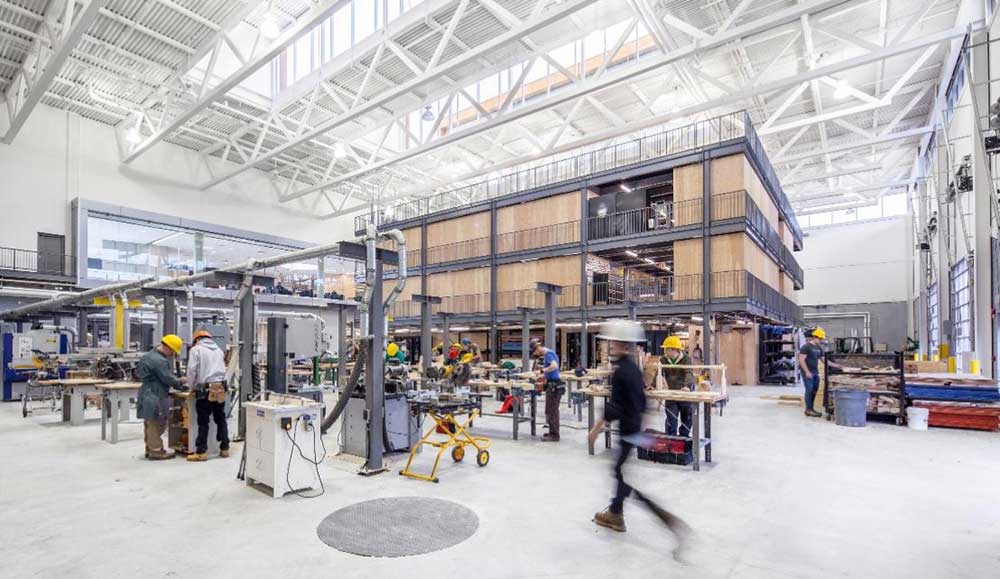The voice of Canada’s Colleges and Institutes
By Anna Guy
 If you want to know the quickest link between the business community and fostering talent, the answer is through CICan— Colleges and Institutes Canada— the national and international voice of Canada’s publicly supported colleges, institutes, cégeps and polytechnics.
If you want to know the quickest link between the business community and fostering talent, the answer is through CICan— Colleges and Institutes Canada— the national and international voice of Canada’s publicly supported colleges, institutes, cégeps and polytechnics.
Founded in 1973, CICan and its members are putting Canada on the global stage in applied education and partnered innovation. Their work has resulted in pioneering innovation in key areas such as climate change, economic growth, and indigenous education through working closely with the government and the private sector. In fact, CICan’s members were involved in over 6,300 private sector partnerships in 2015-2016 alone.
Fostering Entrepreneurship
Denise Amyot, President and CEO of CICan, spoke with Business Elite Canada about the crossover between the business community and CICan’s members. “The business sector is always interested in talent,” says Amyot. “In order to survive and thrive, business must ensure they have the best people for the job. CICan and its members facilitate linkages between students, employers and community at a national and local level. Programs in colleges and institutes are always developed in collaboration with experts and employers through program advisory committees to ensure students are graduating with the skills that businesses require, and we work to align those goals.”
Another intersection between educational institutions and the business community can be found in applied research. CICan has helped guide colleges and institutes to an “exponential increase” in applied research activity, with corresponding infrastructure changes through new sources of funding, and greater diversity in the research. “Today’s college and institute applied research involves key linkages to local business, industry, community partners as well as government,” says Amyot.
“We don’t do pure research, but we answer to the needs of the business sector,” says Amyot. “They knock on the door of the college and ask for assistance with any number of issues, such as making a product in a more efficient way, or faster, or lighter, cheaper, or more environmentally friendly. The college faculty works with the students and finds a solution.”
The biggest advantage for the company is that the IP (Intellectual Property) leaves with the company, which is why it’s such an attractive prospect for business –and why there are so many companies approaching college and institutes. Just last year, colleges and institutes entered partnerships with close to 7,000 companies and community organizations across the country. Colleges and institutes are ideal partners for local industry in the development and improvement of new products and services. They are able to bridge the gap between commercialization and research, allowing many SMEs and Micro Enterprises to get their businesses started in a cost-effective manner.
CICan’s members also have about 400 specialized research centres and labs serving companies of all sizes, from multi-nationals to Micro Enterprises. “This is a significant contribution to the economic development of the communities where they work. It helps create jobs, bring new products to the marketplace, and improve production methods and cost savings for businesses,” says Amyot. For its part, CICan works closely with the federal government and its granting agencies for much-needed funding to meet the growing innovation demand and to accommodate the increasing number of companies looking to work with colleges and institutes. “Our members reach Canadians all over the country,” says Amyot of CICan’s presence. “They are the fundamental drivers of inclusive innovation, and economic growth.”
Talent in Clean Tech
Companies want access to talent, but it can be a costly endeavour to recruit employees—and even then, tricky to know where to start, particularly with progressive industries such as clean tech. To help with this process, CICan manages the Clean Tech Internship program, which connects employers with the skilled graduates they need to grow their green business. The program awards eligible employers addressing climate change or other environmental challenges up to $15,000 to hire an intern in a clean tech position.
“We are very happy to have this partnership with the government with respect to clean tech and hopeful that there will be others soon that will come our way to support the business sector in the natural resource sector,” says Amyot. So far, the program is a success by any measure and has helped match over 175 interns with employers since its launch in 2015. Because of programs like this, many Canadian companies have become early leaders in sustainability.
“What is fascinating is in the last two to three years, European and Australian organizations have come to see what we are doing because of our level of job placement for graduates, our expertise in applied research and the fact that we have so many university students coming to the college system,” says Amyot.
Indigenous Educational Support
Recognizing that Indigenous youth is the fastest growing sector in Canada, and to ensure access and success, CICan has increased its commitment to Indigenous learners and communities across the country, addressing skills development needs in each community. Over fifty institutions have signed CICan’s Indigenous Education Protocol which provides a framework for serving Indigenous peoples and communities.
In fact, there is hardly an area of educational expertise that CICan and its members aren’t involved in. From skills training and applied research, to immigrant integration and international development, CICan is working hard to keep Canada’s reputation as a global leader in innovation and technical education.






